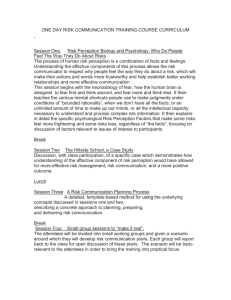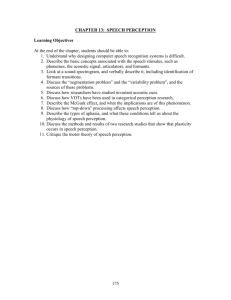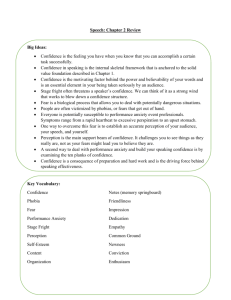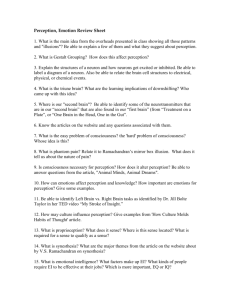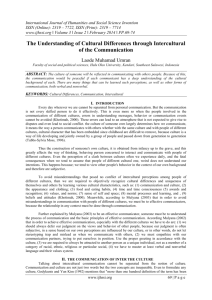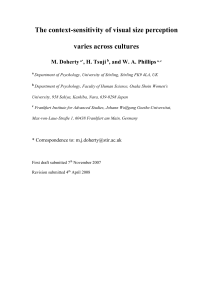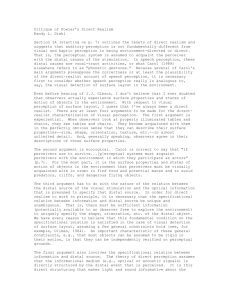Communication can be understood as a practice
advertisement
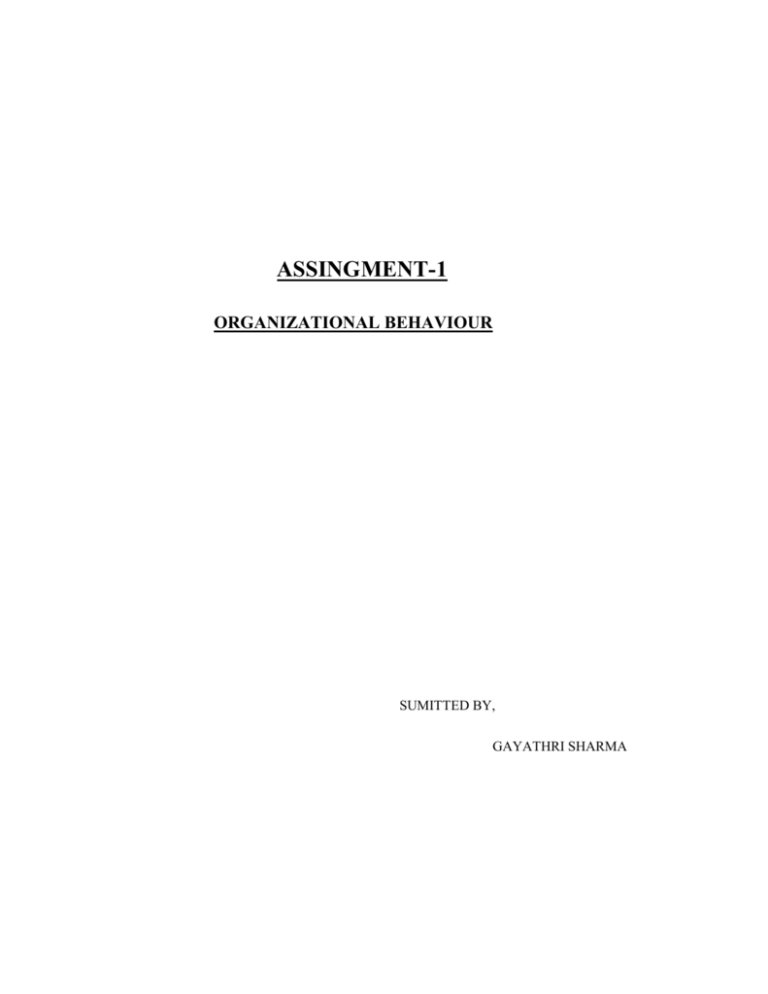
ASSINGMENT-1 ORGANIZATIONAL BEHAVIOUR SUMITTED BY, GAYATHRI SHARMA Communication can be understood as a practice of producing meaning and the ways in which the system are negotiated by the participants in the culture. The individual and the culture in which are is a complex set of relationships. On the one side, the individual determines its culture; on the other hand, it is determined by its culture. By contributing to the culture around him, the individual is part of the cultural change. The basic difference of cultures occur in: - Character - Perception - Thinking - Language - Non verbal communication - Values - Behavior, rules, manners CHARACTER People from one nation share basic common behavioral patterns and personality traits, differentiable from other nations. It is just perception of the one nation or person towards the other, resulting in a number of attributes that one nation or person apparently displays. Knowing these basic characters manager we will be able overcome some of the communication barriers.Managers especially working in multi cultural environment are supposed to know the background of his team. PERCEPTION Perception of a person is dependent on the cultural and material environment he is been bought up in and is this influences the way he thinks.The perception of feeling is altered in different cultural surrounding: shaking hands, have different perceptions in various cultures. Interpersonal distance may be perceived as essential or undesirable. Also the perception of what smells 'good' or 'bad' can be highly different in various cultural surroundings. THINKING The way we think equally depends, and is influenced by the culture.Most of classical Western thinking is based on the Aristotelian view of logic: analytical, linear and rational. Other cultures emphasize a more complex set of logic, which can be described as holistic, associative and affective. Western cultures in particular have developed a highly abstract way of thinking, largely loose of emotions. Concrete thinking models however favor a more plastic, emotional way of thinking. LANGUAGE A symbolical-abstract language is the dominant sign of any culture. The language of any group is directly connected to the world view of the group.The difference in languages is not a difference in sounds and signs, but a difference in worldview. "The real world is to a large extend unconsciously build on the language habits of the group. No two languages are ever sufficiently similar to be considered as representing the same social reality.It is also important to note, that language, just as every other of the cultural determinants, is a dynamic entity that evolves and changes with the time. Equally, subcultures can have their own distinctive words or meanings of words. NON VERBAL COMMUNICATION Although language can be understood as the main way of communication between humans, the gestures and body language is also important.The gestures used in the different parts of the world is profoundly different.These differences must be well understood if the manager has to manage a culturally diverse work culture. Improving Intercultural Communication It is essential that people research the cultures and communication conventions of those whom they propose to meet. This will minimise the risk of making the elementary mistakes. It is also prudent to set a clear agenda so that everyone understands the nature and purpose of the interaction. When language skills are unequal, clarifying one’s meaning in four ways will improve communication: 1. avoid using slang and idioms, choosing words that will convey only the most specific denotative meaning; 2. listen carefully and, if in doubt, ask for confirmation of understanding (particularly important if local accents and pronunciation are a problem); 3. recognise that accenting and intonation can cause meaning to vary significantly; and 4. respect the local communication formalities and styles, and watch for any changes in body language. 5. Investigate their culture's perception of your culture by reading literature about your culture through their eyes before entering into communication with them. This will allow you to prepare yourself for projected views of your culture you will be bearing as a visitor in their culture. If it is not possible to learn the other's language, it is expedient to show some respect by learning a few words. In all important exchanges, a translator can convey the message. When writing, the choice of words represent the relationship between the reader and the writer so more thought and care should be invested in the text since it may well be thoroughly analysed by the recipient.

